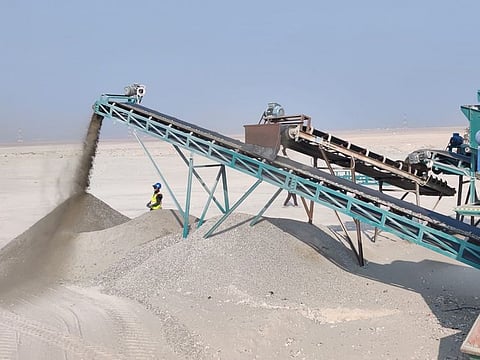Abu Dhabi opens waste crusher in Al Dhafra that can handle 30,000 tonnes of waste a month
Crusher will produce aggregate that can be used in development projects

Abu Dhabi: A waste crusher facility that can process 30,000 tonnes of waste every month has been opened in Abu Dhabi Emirate’s Al Dhafra region.
The Ghayathi crusher will be used to lower construction and demolition waste, thereby promoting environmental sustainability, the Abu Dhabi Waste Management Centre — Tadweer announced in a statement. It can handle 2,000 tonnes of waste per day, producing high-quality aggregate for the construction of vital infrastructure projects in Al Dhafra. The crusher will also help divert significant amounts of waste away from landfills, which, in turn, helps lower greenhouse gas emissions.
According to Tadweer, the recycling process at the Ghayathi crusher starts with the careful examination of construction and demolition waste to ensure that it meets quality requirements, and is free from non-recyclable materials. The waste is then measured and manually segregated from other recyclable materials such as plastic and wood. It is passed through air pumps to remove impurities, and transferred to the main crusher to extract the recycled aggregate in the required sizes.
The use of aggregate for development projects will ensure savings for the local economy. The Abu Dhabi City Municipality already uses aggregate for road development projects.
“The opening of the Ghayathi crusher is aligned with its continued efforts to fulfil Abu Dhabi’s vision of diverting 75 per cent of its waste away from landfills,” said Dr Salem Al Kaabi, Tadweer director general. “The Ghayathi crusher will significantly contribute to the development of an integrated waste management system in the Emirate, offering environmentally-friendly solutions to our construction-based industries,” Dr Al Kaabi said.
Sign up for the Daily Briefing
Get the latest news and updates straight to your inbox







